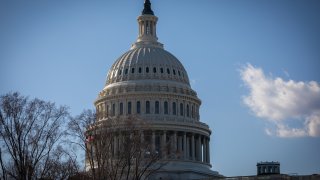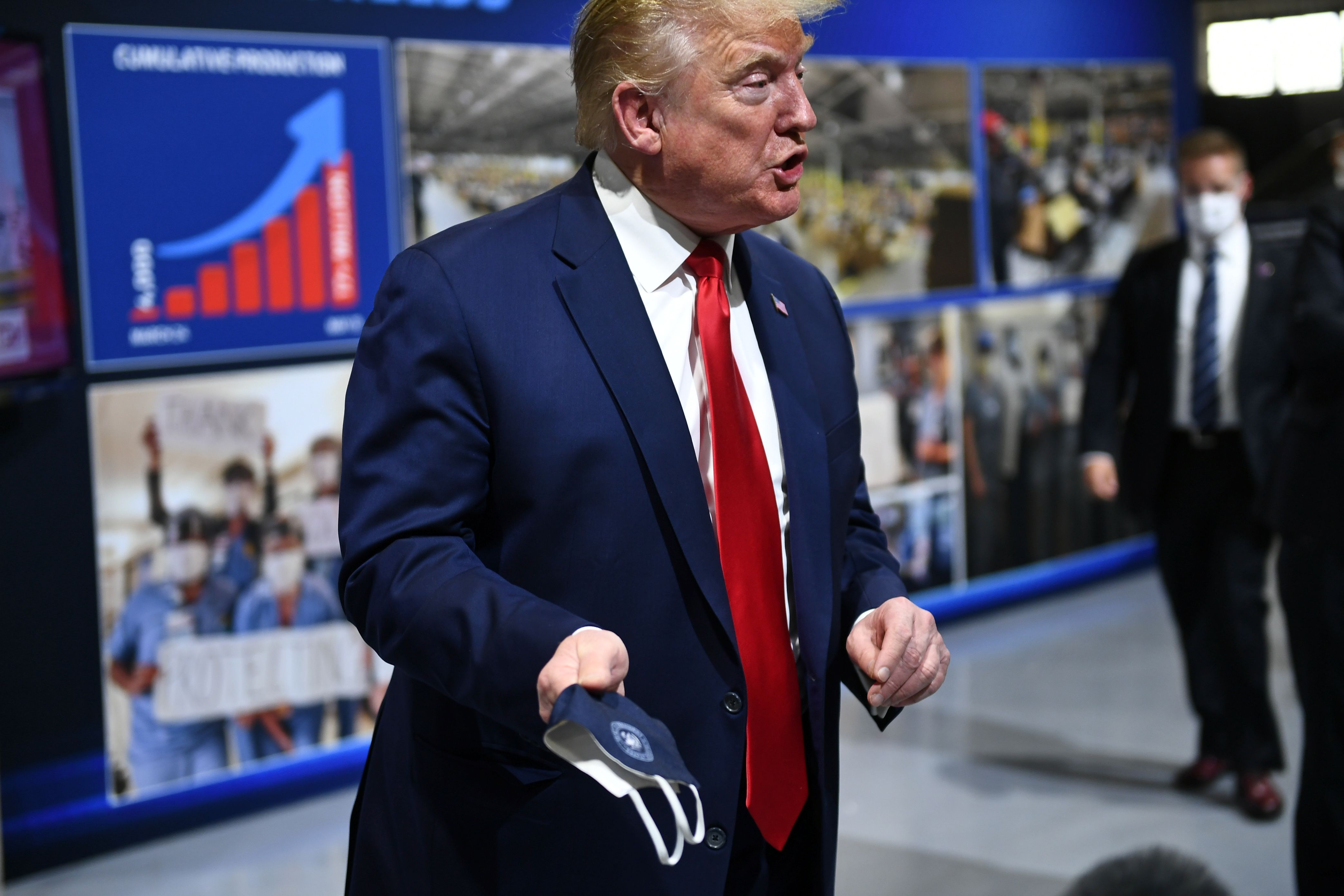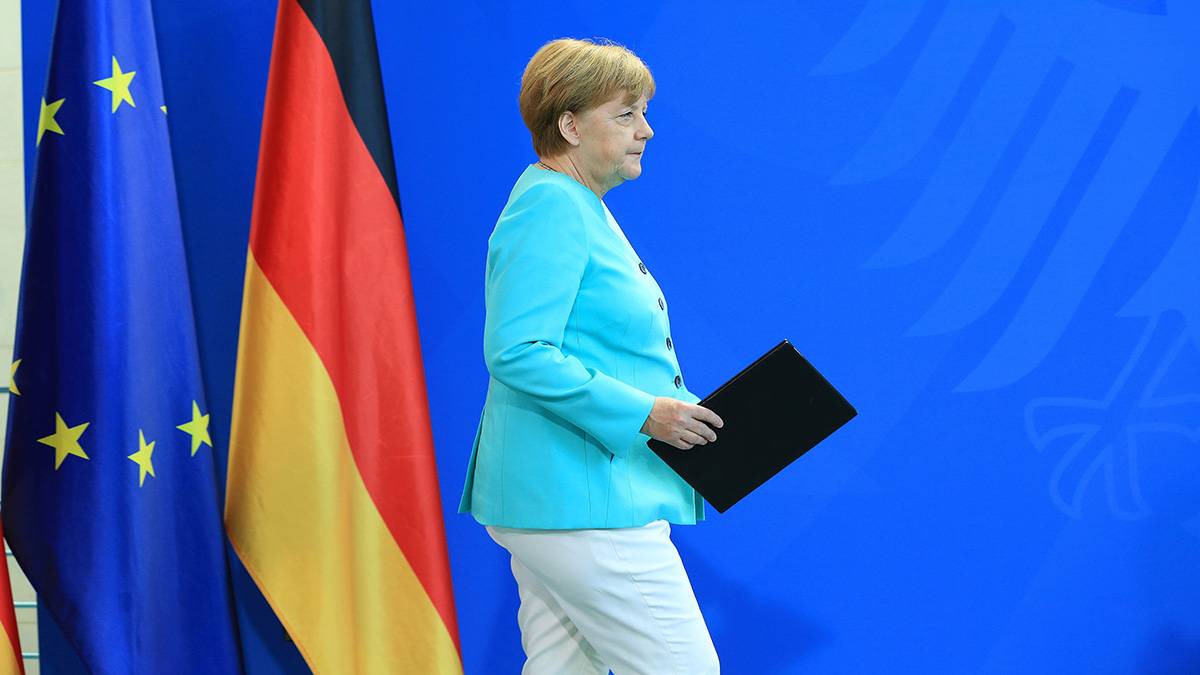
The Senate on Wednesday passed legislation to make it easier for businesses struggling during the coronavirus pandemic to take advantage of a payroll subsidy program that's been a central part of Washington's response to the corresponding economic crisis.
The Senate passed the bill by voice vote after a handful of GOP opponents gave way. The measure now heads to President Donald Trump for his expected signature.
The legislation would give business owners more flexibility to use taxpayer subsidies for other costs and extend the lifespan of the program as the economy continues to struggle through record joblessness and a deep recession.
It passed the House overwhelmingly last week on a 417-1 vote, but was briefly held up this week as Republican leaders sought to placate opponents such as Wisconsin GOP Sen. Ron Johnson.
Get Boston local news, weather forecasts, lifestyle and entertainment stories to your inbox. Sign up for NBC Boston’s newsletters.
The legislation would lower an original requirement that at least 75% of Paycheck Protection Program money be used on payroll costs, reducing that threshold to 60% of the loan. It would also lengthen the period in which PPP money must be used — and still permit businesses to have their loans forgiven — from eight week to 24 weeks.
Critics say the pending measure does nothing to ensure that businesses that don’t necessarily need PPP subsidies are ineligible, among other problems.
“If we’re going to potentially authorize more spending, that program needs to be reformed,” Johnson told reporters. “My main problem with what the House did — and this is what’s in dispute — it basically reauthorized the program through Dec. 31, setting up a massive new infusion into the program without the reforms I think really need to be placed so that people who don’t need it don’t keep getting it. We don’t have an unlimited checkbook.”
But the bill had strong support among both Republicans and Democrats and the backing of powerful business groups, which strengthened the hand of supporters like top Senate Democrat Chuck Schumer, who had failed earlier Wednesday in his own attempt to orchestrate passage. At that time it became clear Johnson's resolve to block the bill was fading and Schumer and Majority Leader Mitch McConnell, R-Ky., reprised the effort only hours later.
“The impact of this crisis is long lasting, and requires lenient terms. We have all heard from small businesses in our states ... that (PPP) needed some changes to make it work for so many small businesses that had been left out or rejected,” Schumer said.
All told, Congress has approved $660 billion for the program in two installments. After an initial burst of loans emptied the program in just two weeks, demand for PPP funding has dwindled amid griping from some business sectors that there are too many restrictions in order to qualify to receive loan forgiveness. Businesses receiving PPP must also certify that they need it to keep operating, a requirement that makes some business owners cautious about applying.
How Coronavirus Has Grown in Each State — in 1 Chart
New York has quickly become the epicenter of the American coronavirus outbreak. This chart shows the cumulative number of cases per state by number of days since the 10th case.
Source: Johns Hopkins University
Credit: Amy O’Kruk/NBC
Johnson said Republicans are hoping to get top lawmakers to sign onto a nonbinding letter to the program's overseers seeking to clarify some of the rules governing the program. He did not explain exactly what he’s seeking but said Republican lawmakers are close to agreement on the language of the proposed letter.
As enacted in late March, the Paycheck Protection Program required businesses to spend their loan money within an eight-week window to get the loans forgiven — and effectively turned into outright grants. It also required that three-fourths of the money be spent on payroll as a means of keeping workers linked to their jobs. But small businesses said the rules were too inflexible, especially as the eight-week window to use the taxpayer subsidies is beginning to close for many businesses, many of which are still struggling to fully reopen.
Restaurants in particular were upset that under the law were required to rehire their laid-off workers even though they were either closed or limited to takeout and delivery. Many other business owners feared that they would use up their loan money before being allowed to reopen, and then have to lay off employees again because their business wouldn’t bring in enough revenue to keep paying everyone.
The new measure gives business owners 24 weeks to spend the federal aid — instead of eight as originally designed — and extends the program through the end of the year while also lengthening the the maturity date and deferral period of the loans.
Coronavirus Pandemic Coverage
Republicans such as Small Business Committee Chairman Marco Rubio of Florida complained that the carefully negotiated bill contains a drafting error that could eliminate loan forgiveness entirely for companies who want to use less than 60% of the money for payroll costs. Under the original PPP legislation, passed in March as part of a massive, about $2 trillion CARES Act, loan forgiveness was prorated according to how badly businesses missed the goal of using 75% to maintain payroll.



